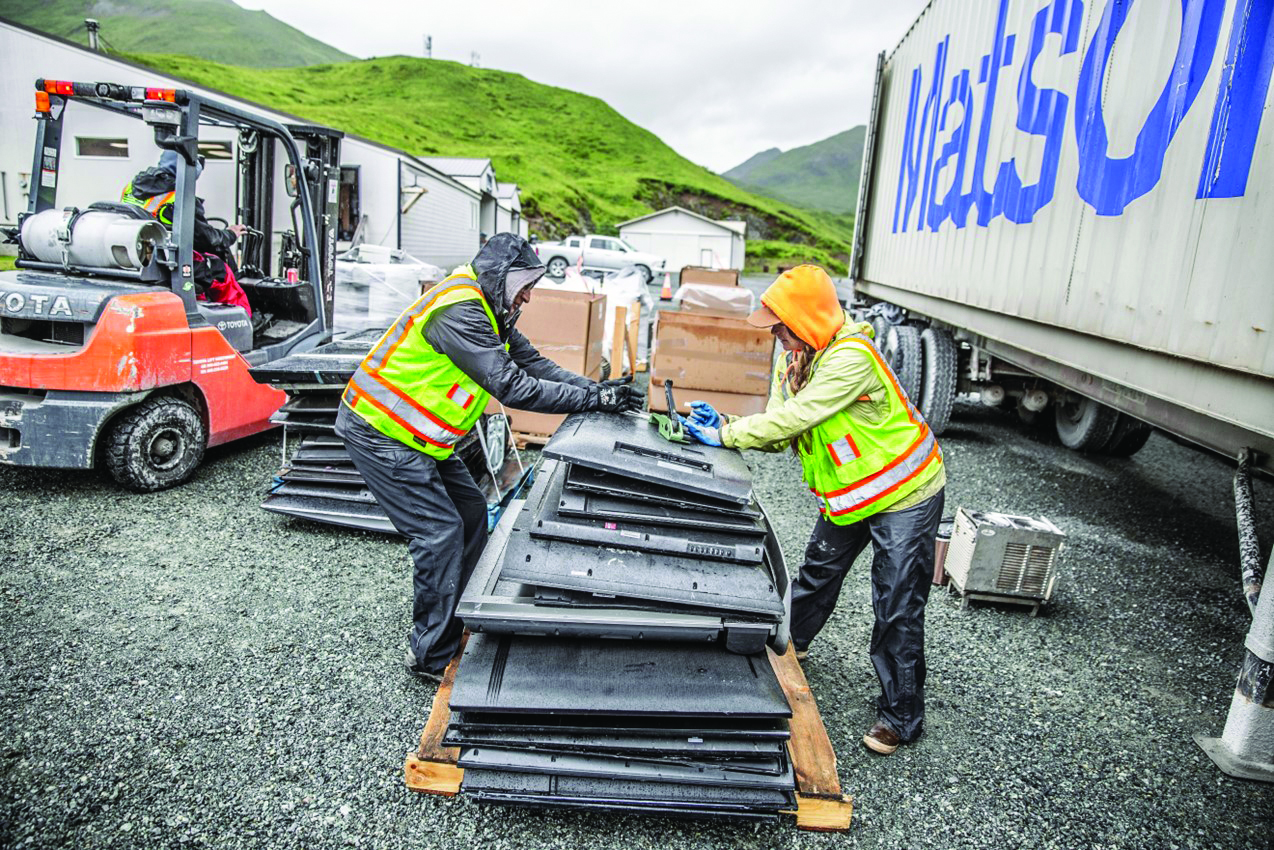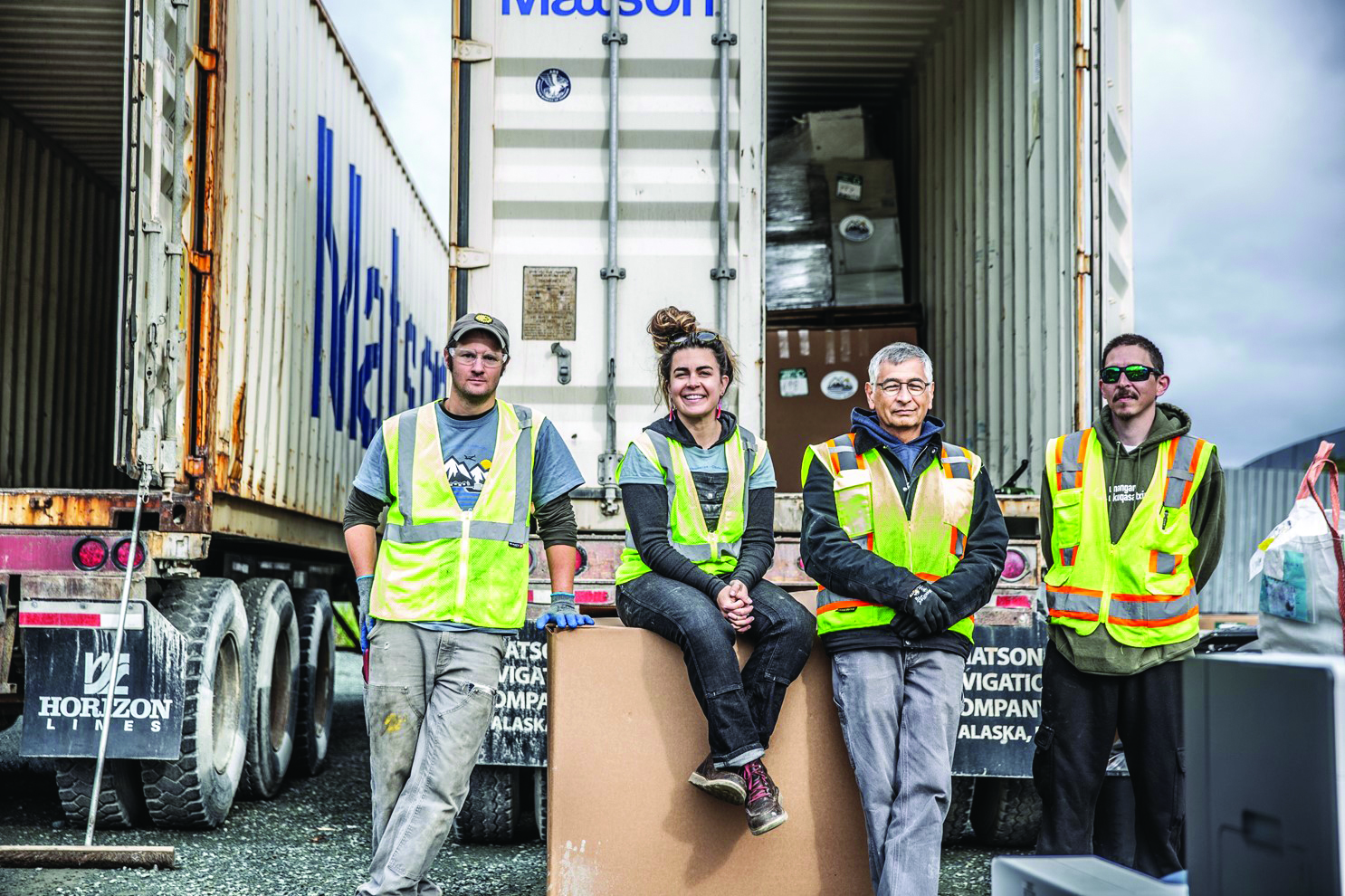
Backhaul Alaska Program Removes E-Waste for Rural Communities
Backhaul Alaska Program Removes E-Waste for Rural Communities

Keeping Alaska’s lands and waters clean often starts in the home, where conscientious disposal of solid waste can significantly reduce the amount of harmful and hazardous waste in the environment. To that end, Backhaul Alaska focuses on providing rural Alaska communities with an affordable and responsible method to dispose of various e-waste, lead acid batteries, and other electronics-based recyclables.
To make this a reality in Alaska, Backhaul Alaska organized dozens of collection events, serving 32 communities across the state that otherwise wouldn’t be able to dispose of or recycle hazardous e-waste properly. Since 2021, Matson’s Caring for Alaska program has provided in-kind support to bring collected e-waste from rural communities to recycling and disposal facilities in the Lower 48.
This in-kind support has resulted in the removal or recycling of more than 391,000 pounds of e-waste in the last two years. The impact of the program and Matson’s support extends quite far in Alaska, helping residents in places as far west and remote as Unalaska and Kodiak. The program is expected to backhaul and recycle over 420,000 pounds of material statewide this year. Matson’s partnership with Backhaul Alaska will continue to provide rural Alaska communities with a responsible option for e-waste disposal to help keep Alaska waters clean.

